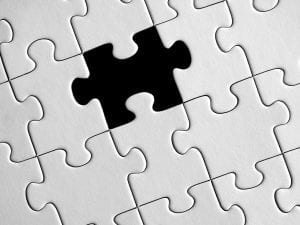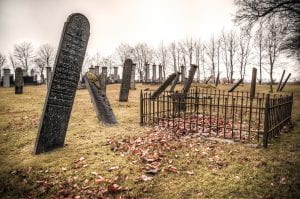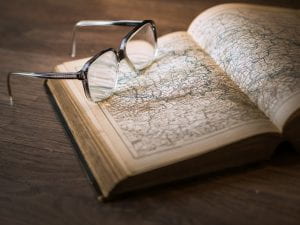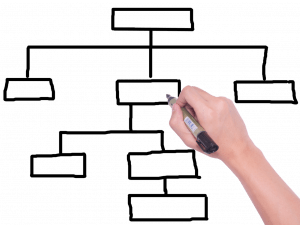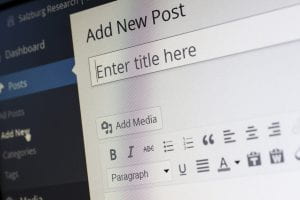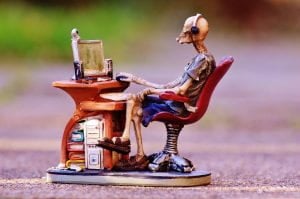An important part of genealogical research is deciding what questions you want answered and where might you find those answers. This was a great choice of topic for #ANZAncestryTime
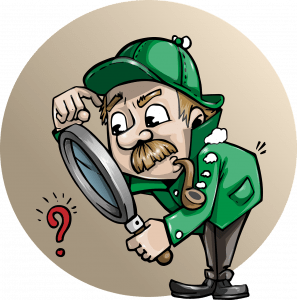
What is the purpose of a research question? Are research questions an important part of your research methodology?
Sorry I can’t make today’s #ANZAncestryTime! Research questions are my favorite topic
Here’s a link to @marksology‘s site The Ancestor Hunt. The March 15, 2021 Bi-Weekly Newsletter includes my guest post, “Crafting an Irresistible Research Question”. /2 theancestorhunt.com/blog/bi-monthl…
You can find out more about Genealogy and Family History Stack Exchange, a question-and-answer site where I’m one of the mods pro tempore, by taking the tour and reading our help center. /3 genealogy.stackexchange.com/tour
Sometimes when we’re reviewing prior research as we’re writing up our questions for the site, we discover we know how to answer the question ourselves. Stack Exchange encourages people to write self-answered questions as a way to share our work. /4
These journals from @GenSocIreland will be of interest to those with #IrishGenealogy. Issues include practical information about working with documents such as Irish Wills, as well as family histories of the diaspora issuu.com/gensocireland/…
When doing the diploma, I found Dianne Snowden gave great help when setting up specific research question rather than just a general one. This has improved my researching skills tremendously
I really should have done that intro subject 😬 #ResearchQuestions are immensely useful & I should endeavour to use them more.
I do rely on research questions when writing my family stories. They create an intention & help me to stay focused. I tend to easily go off track otherwise
The point of a research question is for it to be specific so it can help you to find the answer to a problem. A research question helps you stay focused on a task
Ever since I started Family History at the University of Tasmania I have tried to write a focused and concise research questions as part of my research plan – to focus my research. Have I been successful? NO.
I find using the website research Ties helps me to write research questions as it is set up for this purpose app.researchties.com/users?verifica…
Going back over previous research and reexamining evidence very helpful in formulating the next steps – and deciding what question needs to be answered.
I am not good with excel Alex so I need a well structured log ready made for me. Research ties helps me to keep track of my research and since I began using it I tend to use research questions more
A well crafted research question can guide our research to the right record set
Writing out a research question forces you to focus on what you want to know. You can see if it is more than one question. Or maybe you are a little confused and have to relook at your evidence. To me it is focusing on just one question at a time.
Shauna to me question at a time is key, along with focus., Without a research question I would want to tell a person’s entire story in one writing session.
It depends on what you mean by a question. I have questions I want answering all the time. Today’s – what is John Cummings’ date and place of birth? Why is he not in any records until he marries my cousin in 1916?
Relooking at your evidence is a helpful process when researching.
I think research questions help structure your thoughts and identify what you already know and keep you on course as it were. I need to use them more regularly in my research.
I find that if I formulate research questions I am more likely to achieve a successful outcome as I stay focused
I’m currently writing family stories for the April A-Z blogging challenge. A research question for each post stops me rambling on and losing focus of the intention of the post.
I found Thomas MacEntee’s Genealogy Do Overs very useful in this regard. Encouraging us all to go over previous research, slow down and testing theories. I blogged about it here familytreefrog.blogspot.com/2015/01/do-ove…
Currently going over all my research entering sources first rather than just dates and places so if no source it does not get entered
A much as I promise myself that I will put some source even if it is not perfect I found 2 people yesterday that I have added to try to get to DNA matches & have no idea where I got them from. They are living to so it’s probably not a tree
It is easy to forget where we found things when we forget to record it Fran but we all do it from time to time
Research Qs help narrow scope/time (important for me with any client work). For personal work, I tend to use research Qs when I’m investigating a theory e.g. pattern of 1Cs rather than siblings as wits. Otherwise, generic research Q “what can I learn about X”
It really is helpful. Don’t get me wrong, there are times when I just poke, shake, rattle and pull (my own research) randomly to see what shakes out. Sometimes best discoveries are from that or it allows me to frame a more concrete question.
Yes, RQs are an important part of my research methodology. Asking the right question, and making sure the question is answerable, can open up new avenues for #genealogy research.

How would you structure an effective research question? Do you record your research questions, evidence and outcomes in a research log?
I really dislike research logs & don’t use them. I record my research question plus evidence & outcomes in my family history program.
I used to use notebooks but I found that I wasn’t able to quickly find where I had found information so an online log is working well so far
Yes Sharn – same. I think what is great about online logs (read blog in my case) is that you can tag stuff and search for it easily.
My rule of thumb is “use what works for you”. The best system is the one you’ll actually use.
well I am always firmly in favour of never reinventing the wheel when someone has already done a marvellous job. I recently discovered Prudence Dwyer’s SMART research goals template on Fuzzy Ink Stationery creativefamilyhistorian.com/productivitypo…
To create a good question you must gather what you already know and how you know it. I will only record a question if I am going somewhere to find the answer
An excellent point Hilary. As the Cheshire cat said to Alice when she asked which road to take “It depends on where you are going”
Unfortunately I don’t record my research question, evidence and outcomes in a research log very often. My blog is the closest I come to that. Here is an example of some recent research but I need to do better – check blog listed below
Hard to describe in a few words. I include points to create borders around or exclude information that you might find. Eg born 1888 means you can pass by years say 1888+-2 years. Or immigrated to Aust in 1895 means suggests the 1901 census is not relevant.
I usually use pen and paper. I don’t keep them once I have answered the question. I record the outcome in my genealogy software. I don’t use a research log & never have. With new resources coming online I think we need to review and go over existing research.
This is how I do it too Shauna. I’m so pleased to hear you don’t use research log either. I did think I was a ‘bad genie’ for not using them
I have only been using a research log since we did that topic Jennifer but I have found it helpful so far for remembering what I have done – sometimes I forget and grab a notebook out of habit
I find it works for me to record it in Legacy in the notes for the person
I use notes in Legacy for DNA information seeing my tree is a DNA matches tree. I have my own sources too like BDM Online and Cemetery Search
I create a structure for blog pages of my ancestral lines – so that helps keep it focused rather than necessarily writing research questions – however for my Colonial American ancestry research I created a summary project page of directions I was taking
A summary project page is a great idea. I always create a structure when beginning a blog post about a family member. Along with the research question it helps to keep it clear and concise
Perhaps I subconsciously do this as I write my profiles. I have certain data I try to find for all of them, then look for extra info if I have time. That list is in my head. Then I add the categories and stickers
I usually have a research aim with two or three questions relating to it, then list of records to use to find the answers
I’ve been wondering WHERE people write their #ResearchQuestions. I think i’d have to have it, in very large letters, on a whiteboard above my desk, for it to keep me honest.
My whiteboard is where I put my research question Brooke. Along with any brain storming I think of that might help to answer the question
I also write the research question in the person’s notes in Legacy and at the top of a blog post and delete it when it’s completed. I find that works really well for me
I like that approach Jennifer. I’ll have to find the equivalent notes place in Family History Maker software.
If I am going to the archives, I will write question on my notes app in ipad, then as I find answers will add to the app
Several apps been released over the last few months for use on @WikiTreers. For Electoral Rolls I use the Ancestry Citer app. The source is same for all except district & year. I keep it loaded on a tab, add link, create source, copy & paste it in the profile.
I agree! I like to break down a research question into small distinct steps. That way you feel like you’re making progress, even if you can’t answer the question fully, or straight away.
SMART works for me: Specific, Measurable, Achievable, Realistic, Time-sensitive. e.g. What testamentary evidence is available from online sources (incl. library/archive catalogues and newspapers) for person X in country/ies Y between 1852 and 1890.
Approach depends on context. For theory testing usually excel. For personal research, the log is the person profile and allows me to identify specific knowledge gaps. Otherwise, word doc with headings tailored to research q, incl search parameters/criteria
I use @ScrivenerApp as my research planning journal. It is writing software with an integrated outliner, document editor, and index cards.
For research planning and discovering questions to explore, I like to create a timeline and a checklist of sources already gathered. For tough cases, I use a spreadsheet based on this design by Crista Cowan.
Crista’s checklist is cleverly designed to go along with Ancestry’s categories of records (no surprise there). I’ve added other categories to mine, like academic papers and genealogy journals.
There’s a space on the Source Checklist spreadsheet to put the research question at the top. If you have several RQs about the same person or family line, or in the same locality, it’s easy to copy a sheet and keep everything together in the same workbook.
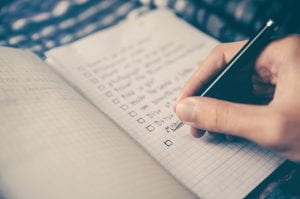
Tell us how you have used / could use a research question to solve a problem in your family history research?
Well I may submit a brickwall question to the SAG English research group this week but want to be sure that I present the information clearly to them. Their guidelines ask what I know and where I’ve looked so that is a start.
A key part of a research question for me is a timeline. That allows me to see any gaps or inconsistencies. James Henry Trevaskis disappeared in Copperfield, QLD. I have narrowed down to less than 5 year gap. Still haven’t solved that but review every so often.
I have several places where a research question may help usually when father is unknown
Before I formulate my research question. I always create a timeline to help show where I have gaps. I love timelines!
I find that I tend to use research questions more when I have a tough problem to solve like differentiating between two people of the same name. Staying focused and writing everything down helps
For me I need focus. Writing a question down, reviewing what I have, listing possible sources, not repeating work. Am I successful? Not all the time however if I do a weekend full of research I do progress and get more done.
I love the timeline approach. @ScientistSoph ‘s GenShow presentation about negative space emphasised how useful it is.
I’ve used MindMaps for framing some complex challenges like finding ancestry of my 3 x gt gdmother from the Isle of Skye – wrt Viking ancestral lines etc
Currently examining 1898 and 1902 reports of sibling funerals to identify those individuals/families who attended both and using 1901 census to begin building family trees for those men to query relationship to family. Early days but promising
I’ll link to some of my RQs that I posted on Genealogy Stack Exchange. (As my husband’s former boss used to say, “If you don’t cite yourself, who will?”)
I found a card index for probate files on FamilySearch and realized I didn’t know how to use the index properly to find the file. So I worked it out and posted a self-answered question to show others how I solved the problem. genealogy.stackexchange.com/q/5372/1006
This brilliant QA was written in response to one of my questions on the site about GRO subdistricts. If you need to narrow the geographical area when ordering a certificate for a birth or death in England and Wales, try this clever hack. genealogy.stackexchange.com/q/10355/1006
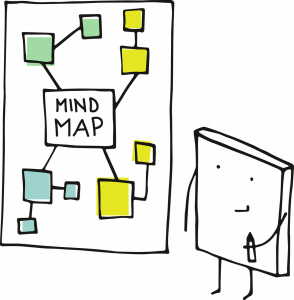
Share where we can find information about using research questions. What has been your best source of information?
Another post that helps with writing a Family History research question from @familylocket. familylocket.com/research-like-…
my research questions are not as detailed as some of I have seen. Depends on what the issue is. I prefer to keep things simple, You can use your genealogy software to record them eg by using tags for brick walls and then in the text list what you know
Some blogs and websites with information thefhguide.com/blog/inside-th… bcgcertification.org/ten-minute-met…
If I have a particularly sticky research question I will use @EvidentiaSoft to analyse the information
We do have to think of those who come after us Margaret. When I think back to some of the old info, totally unsourced that has been handed to me over the years. It’s very frustrating. You want to be helpful to your descendants
That is why I put all my research on WikiTree and FamilySearch – it will be available for everyone after me. I am transferring my mother’s 50 years of work from her unsourced trees to these place adding the sources as I go. I HAVE NO DESCENDANTS.
perhaps the best piece of research I did was with the aid of a mindmap which did show up areas of research I hadn’t investigated in connection with my maternal grandfather. I blogged about it here familytreefrog.blogspot.com/2015/03/resolu…
How to Develop a Quality Genealogy Research Question from @FHFanatics. I love the Youtube with Devon & Andrew. To the point, quick and easy to understand. familyhistoryfanatics.com/quality-resear…
I think we all have our own approaches that suit our brains/work styles. Mine is based on college & experience. There’s no “right” way IMHO. Maybe one mentioned today will resonate more than others. Do what works for you. Best advice is “suck it and see”! 🙂
Blog posts
Sue: Conducting your research.
Alex: Canadian research,
We picked this topic to help us think about Research Questions as next week we are doing “Helping Solving Your Brick Walls”. It is one of the popular suggestions for a topic. During the week feel free to write a question & tweet questions.
Not quite sure how it will work. Other chats do this so lets give the topic “Helping Solving Your Brick Walls” a go next week. Regards Fran & the team
Readers: Do you use research questions and how do they help you in your research?
